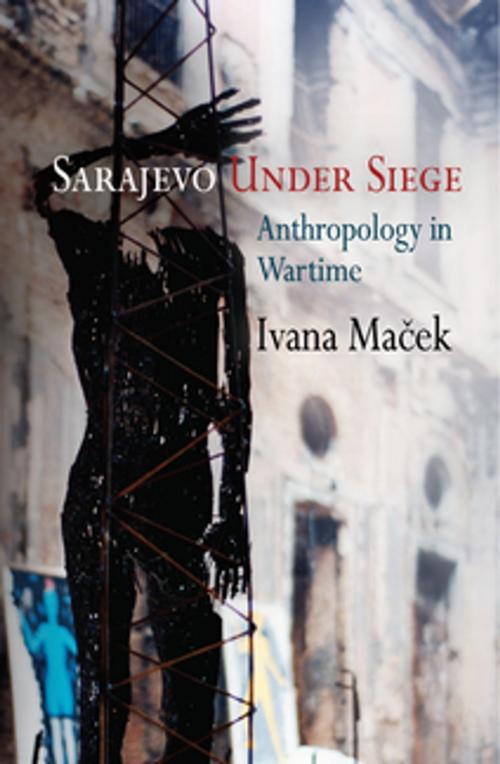Sarajevo Under Siege
Anthropology in Wartime
Nonfiction, Social & Cultural Studies, Social Science, Anthropology| Author: | Ivana Maček | ISBN: | 9780812294385 |
| Publisher: | University of Pennsylvania Press, Inc. | Publication: | November 17, 2016 |
| Imprint: | University of Pennsylvania Press | Language: | English |
| Author: | Ivana Maček |
| ISBN: | 9780812294385 |
| Publisher: | University of Pennsylvania Press, Inc. |
| Publication: | November 17, 2016 |
| Imprint: | University of Pennsylvania Press |
| Language: | English |
Sarajevo Under Siege offers a richly detailed account of the lived experiences of ordinary people in this multicultural city between 1992 and 1996, during the war in the former Yugoslavia. Moving beyond the shelling, snipers, and shortages, it documents the coping strategies people adopted and the creativity with which they responded to desperate circumstances.
Ivana Maček, an anthropologist who grew up in the former Yugoslavia, argues that the division of Bosnians into antagonistic ethnonational groups was the result rather than the cause of the war, a view that was not only generally assumed by Americans and Western Europeans but also deliberately promoted by Serb, Croat, and Muslim nationalist politicians. Nationalist political leaders appealed to ethnoreligious loyalties and sowed mistrust between people who had previously coexisted peacefully in Sarajevo. Normality dissolved and relationships were reconstructed as individuals tried to ascertain who could be trusted.
Over time, this ethnography shows, Sarajevans shifted from the shock they felt as civilians in a city under siege into a "soldier" way of thinking, siding with one group and blaming others for the war. Eventually, they became disillusioned with these simple rationales for suffering and adopted a "deserter" stance, trying to take moral responsibility for their own choices in spite of their powerless position. The coexistence of these contradictory views reflects the confusion Sarajevans felt in the midst of a chaotic war.
Maček respects the subjectivity of her informants and gives Sarajevans' own words a dignity that is not always accorded the viewpoints of ordinary citizens. Combining scholarship on political violence with firsthand observation and telling insights, this book is of vital importance to people who seek to understand the dynamics of armed conflict along ethnonational lines both within and beyond Europe.
Sarajevo Under Siege offers a richly detailed account of the lived experiences of ordinary people in this multicultural city between 1992 and 1996, during the war in the former Yugoslavia. Moving beyond the shelling, snipers, and shortages, it documents the coping strategies people adopted and the creativity with which they responded to desperate circumstances.
Ivana Maček, an anthropologist who grew up in the former Yugoslavia, argues that the division of Bosnians into antagonistic ethnonational groups was the result rather than the cause of the war, a view that was not only generally assumed by Americans and Western Europeans but also deliberately promoted by Serb, Croat, and Muslim nationalist politicians. Nationalist political leaders appealed to ethnoreligious loyalties and sowed mistrust between people who had previously coexisted peacefully in Sarajevo. Normality dissolved and relationships were reconstructed as individuals tried to ascertain who could be trusted.
Over time, this ethnography shows, Sarajevans shifted from the shock they felt as civilians in a city under siege into a "soldier" way of thinking, siding with one group and blaming others for the war. Eventually, they became disillusioned with these simple rationales for suffering and adopted a "deserter" stance, trying to take moral responsibility for their own choices in spite of their powerless position. The coexistence of these contradictory views reflects the confusion Sarajevans felt in the midst of a chaotic war.
Maček respects the subjectivity of her informants and gives Sarajevans' own words a dignity that is not always accorded the viewpoints of ordinary citizens. Combining scholarship on political violence with firsthand observation and telling insights, this book is of vital importance to people who seek to understand the dynamics of armed conflict along ethnonational lines both within and beyond Europe.















